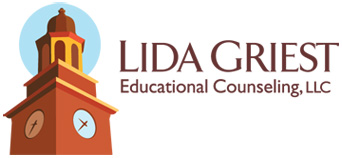Transitions 2013: High school to Higher Education
Options for Students with Learning Differences
On Feb 1, 2013, I had the opportunity to attend the fourth annual Transitions Conference at Lynn University. If my readers get one important message from this blog, it is to run to the website of Dr. Robert Brooks, a psychology professor at Harvard’s Medical Schools. In his website you will find numerous articles that discuss Dr. Brooks’ research on children and what characteristics are necessary in order for a young person to develop high self-esteem. This is a particular challenge for students with learning differences since they have been facing failure in the classroom for years. Dr. Brooks’ web address is listed below:
www.drrobertbrooks.com
Dr. Brooks is a well-known lecturer and author of many books about working with students with learning differences. His well-known book, Raising Resilient Children, is a must read for all parents and educators alike. His research focuses on the idea of the “power of mindsets.” Dr. Brooks’ defines a mind set as “the assumptions and expectations we have of ourselves and others that guide our behavior.” He lists several necessary ingredients in order for a struggling student to develop a positive mindset. The first is for the child to have access to a charismatic adult in his/her life. The primary characteristic of a charismatic adult is that this is an adult from whom a child or adolescent provides hope.” HOPE is the main ingredient for a student to develop a healthy sense of self. Many young people with learning differences have lost this very important element in their lives.
Dr. Brooks’ research has shown that are three key elements that are needed in establishing a positive mind set in all young people especially those struggling with a learning difference. They are:
1. “To feel comfortable with and appreciate that others can be of support and assistance.” The power of a relationship is the first step in a healthy life view.
2. “To believe in personal control.” Dr. Brooks states that a sense of ownership is critical for success in school and in life.
3. “To possess personal control requires effective problem solving and decision making skills.” These skills are necessary for the young person to make healthy transitions in his/her own life.
Dr. Brooks suggested that we should all ask ourselves these three questions in order to understand how we all develop our mindset.
1. What three people are my charismatic supporters?
2. What three people from my childhood played the role my charismatic adult?
3. What three people would list me as their charismatic adult?
After attending the Transitions 2013 Conference at Lynn University, it is my goal to consciously try to be the charismatic adult in my students’ lives.
